Late Spring 2025 Snapshots From Extension’s Pollinator Paradise Garden
go.ncsu.edu/readext?1079282
en Español / em Português
El inglés es el idioma de control de esta página. En la medida en que haya algún conflicto entre la traducción al inglés y la traducción, el inglés prevalece.
Al hacer clic en el enlace de traducción se activa un servicio de traducción gratuito para convertir la página al español. Al igual que con cualquier traducción por Internet, la conversión no es sensible al contexto y puede que no traduzca el texto en su significado original. NC State Extension no garantiza la exactitud del texto traducido. Por favor, tenga en cuenta que algunas aplicaciones y/o servicios pueden no funcionar como se espera cuando se traducen.
Português
Inglês é o idioma de controle desta página. Na medida que haja algum conflito entre o texto original em Inglês e a tradução, o Inglês prevalece.
Ao clicar no link de tradução, um serviço gratuito de tradução será ativado para converter a página para o Português. Como em qualquer tradução pela internet, a conversão não é sensivel ao contexto e pode não ocorrer a tradução para o significado orginal. O serviço de Extensão da Carolina do Norte (NC State Extension) não garante a exatidão do texto traduzido. Por favor, observe que algumas funções ou serviços podem não funcionar como esperado após a tradução.
English
English is the controlling language of this page. To the extent there is any conflict between the English text and the translation, English controls.
Clicking on the translation link activates a free translation service to convert the page to Spanish. As with any Internet translation, the conversion is not context-sensitive and may not translate the text to its original meaning. NC State Extension does not guarantee the accuracy of the translated text. Please note that some applications and/or services may not function as expected when translated.
Collapse ▲Cooperative Extension’s Pollinator Paradise Demonstration Garden was created in late 2008 at Chatham Mills in Pittsboro to provide forage from early spring to late fall for pollinators such as native bees, honey bees, wasps, butterflies, flower flies, hummingbirds, beetles, and other beneficial insects. The garden features over 225 unique species of perennials, 85% of which are native to North Carolina. The garden is a great teaching tool that I use to conduct workshops and tours for hundreds of folks each year. It has taught me so much and I enjoy sharing this knowledge with others. Below you can see photos of the pollinator garden from mid-May through mid-June.
Click here for links to all the seasonal photo collections
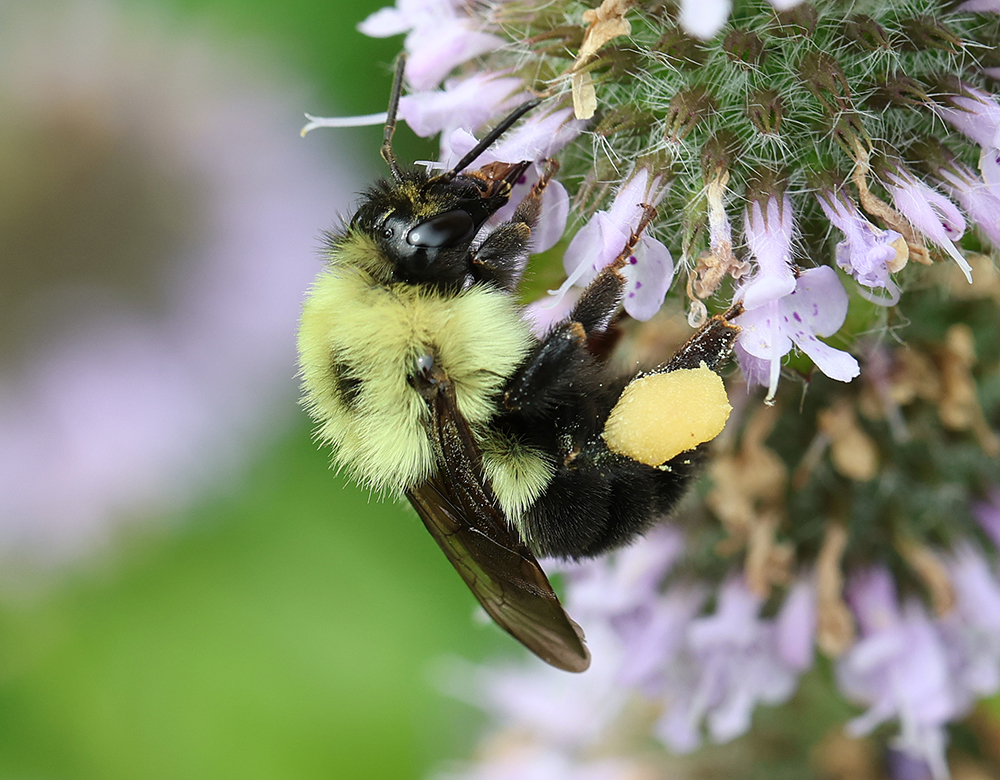
Bumble bee on downy wood mint (Blephilia ciliata). Photo by Debbie Roos.
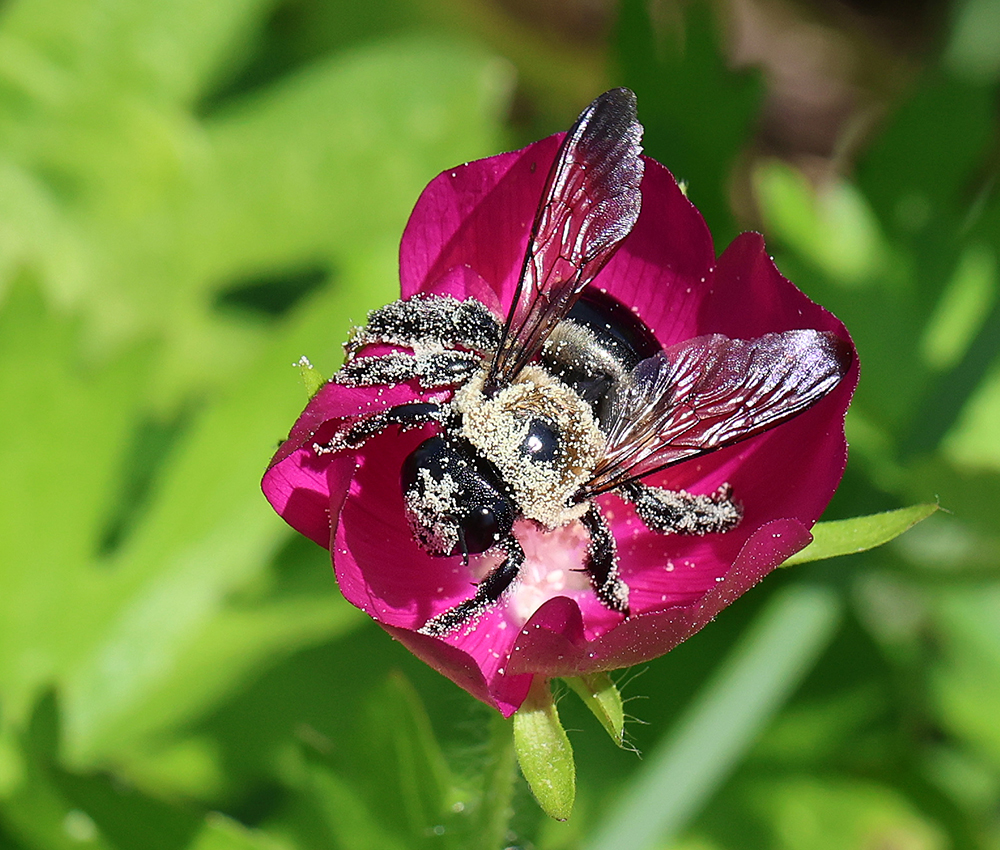
Carpenter bee covered in pollen in a prairie poppy mallow (Callirhoe involucrata) bloom! Photo by Debbie Roos.
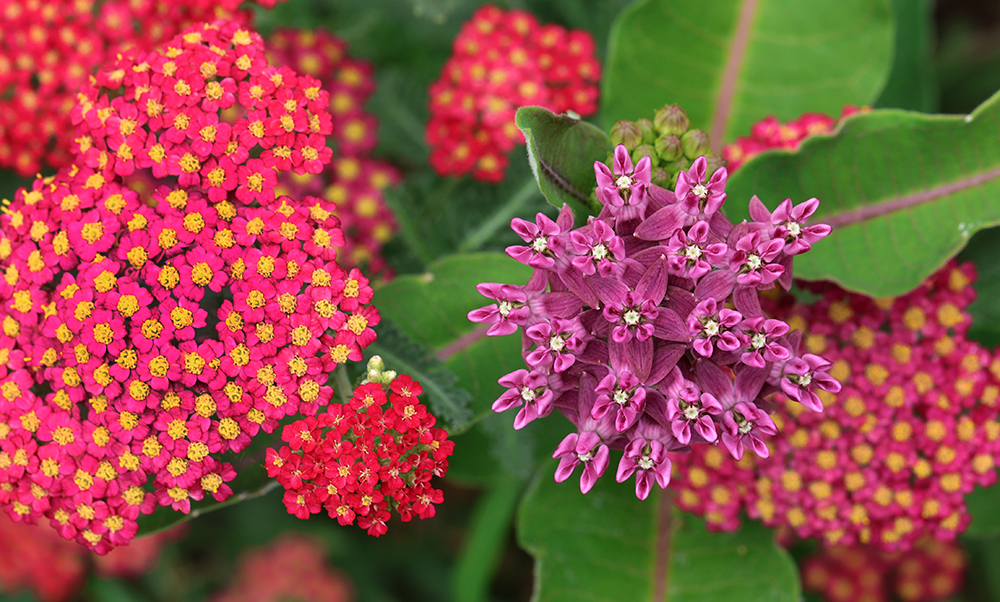
Purple milkweed (Asclepias purpurascens) and ‘Paprika’ yarrow (Achillea millefolium ‘Paprika’). Photo by Debbie Roos.
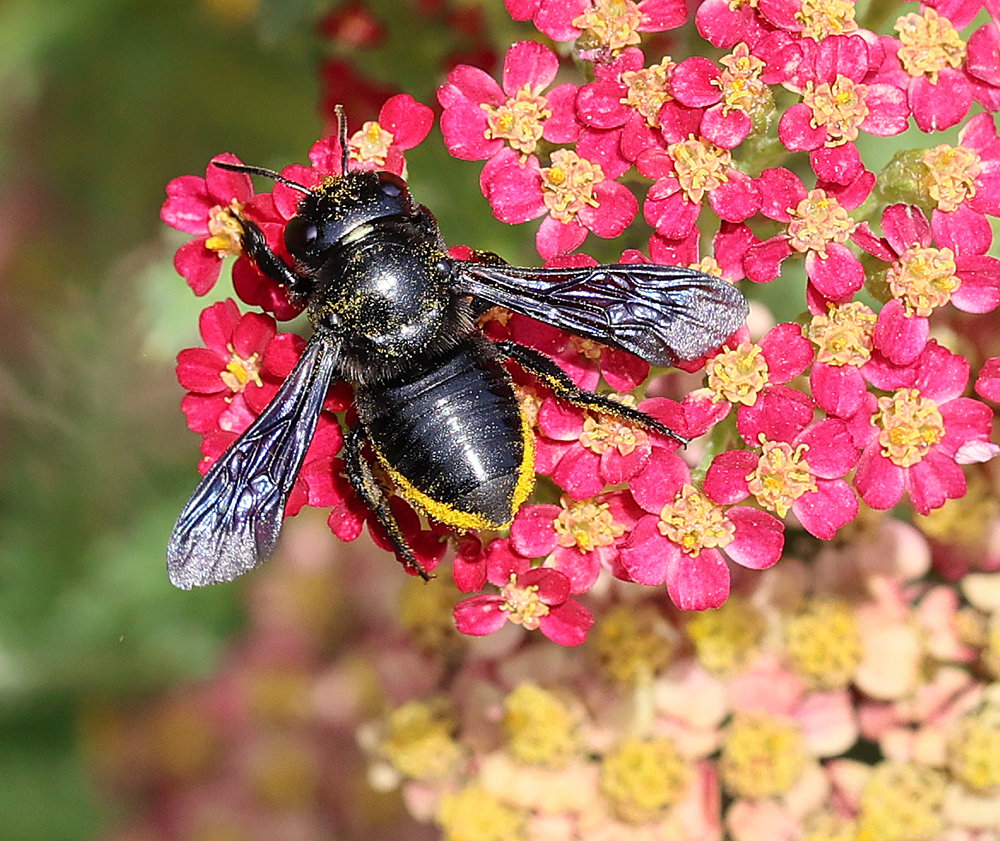
Carpenter-mimic leafcutter bee on yarrow. Photo by Debbie Roos.
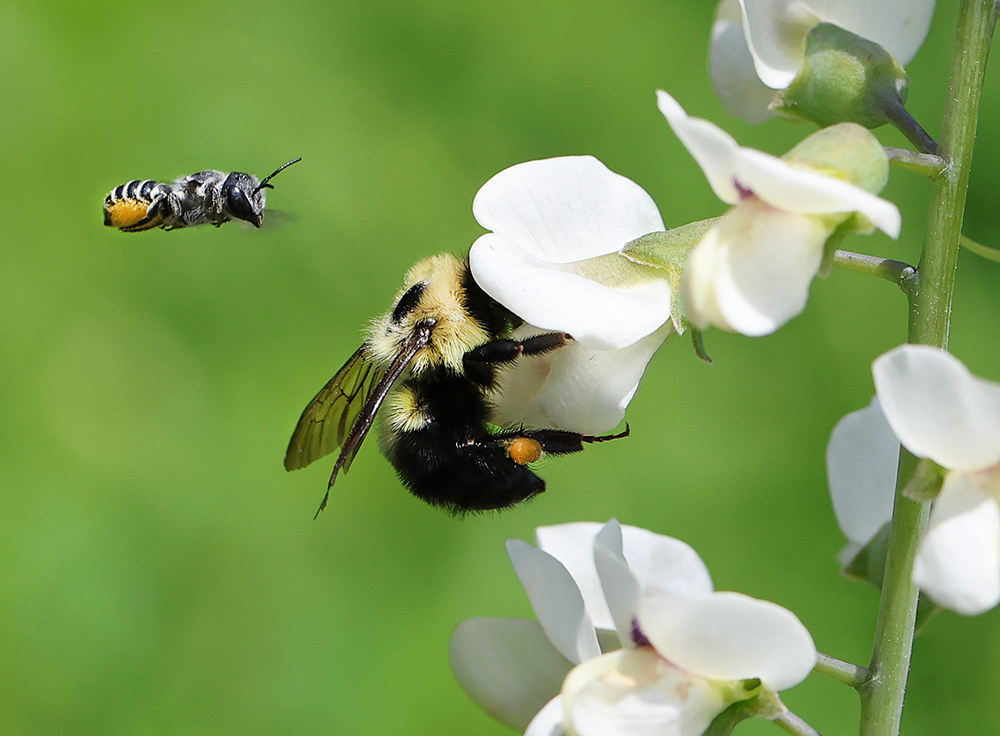
Incoming! A leafcutter bee approaches a bumble bee foraging on a wild indigo plant (Baptisia alba). Photo by Debbie Roos.
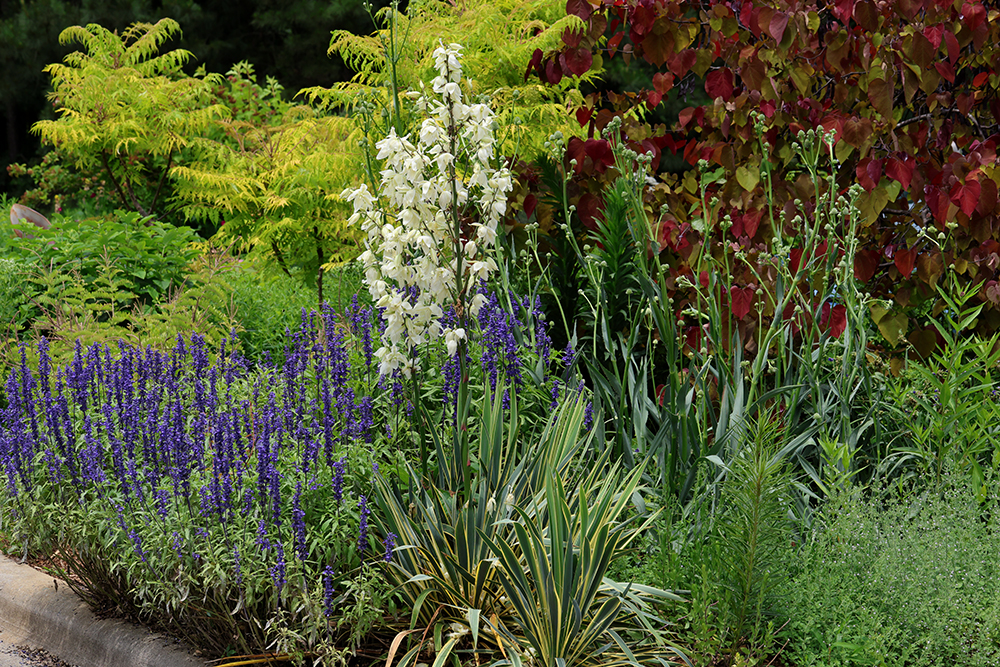
Early June parking lot island bed. Photo by Debbie Roos.
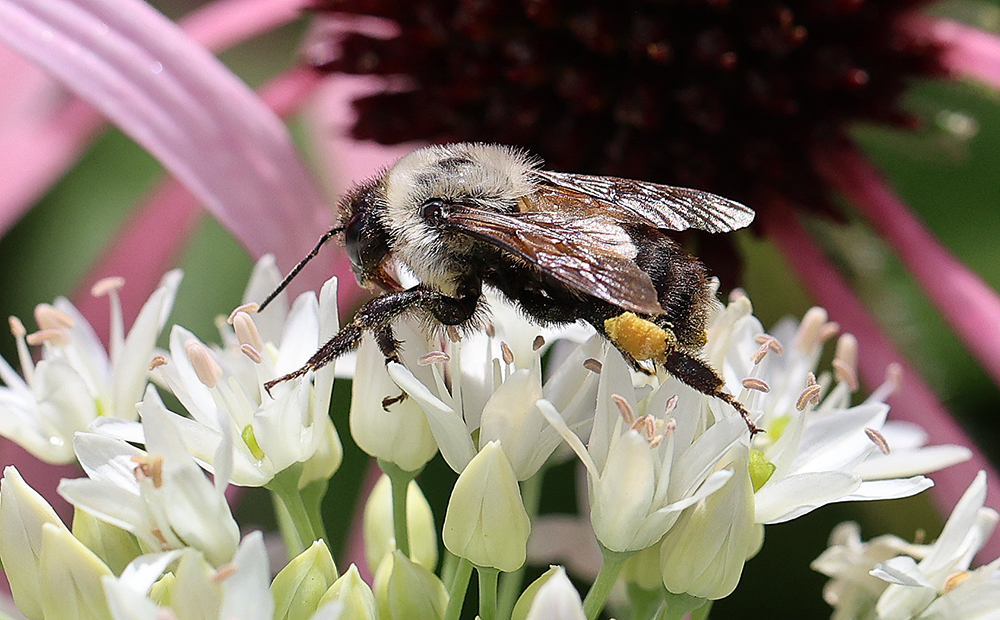
Bumble bee on nodding onion (Allium cernuum). Photo by Debbie Roos.
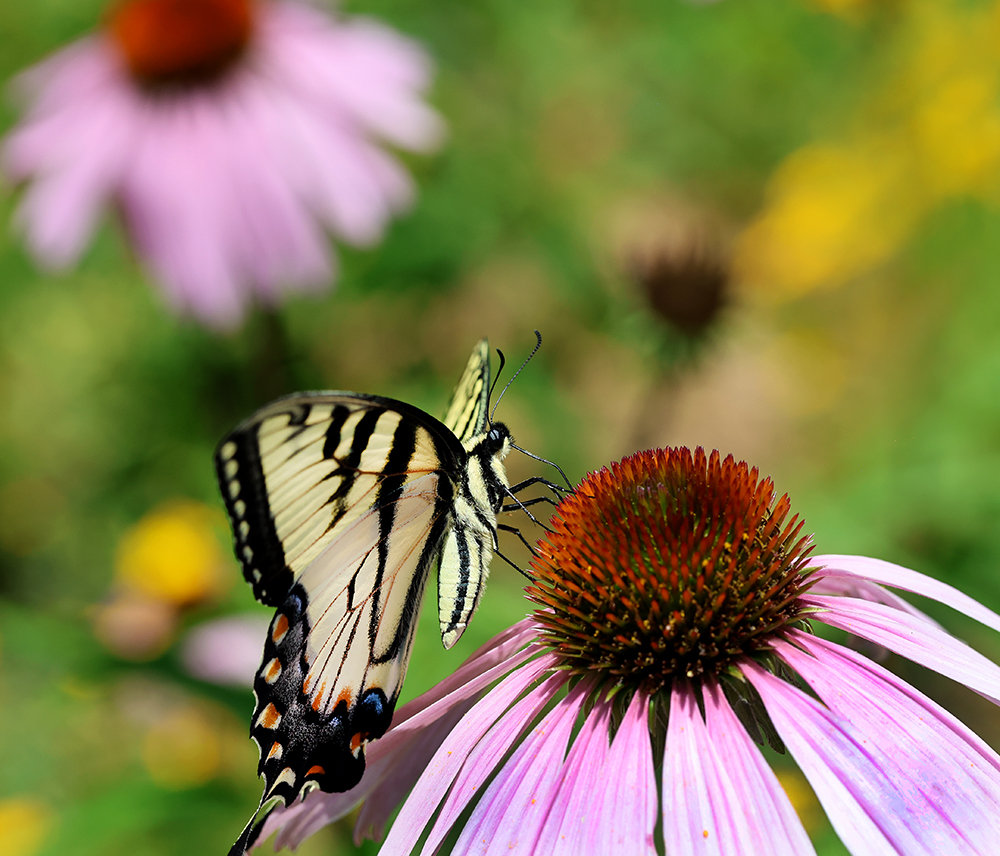
Eastern tiger swallowtail on purple coneflower (Echinacea purpurea). Photo by Debbie Roos.
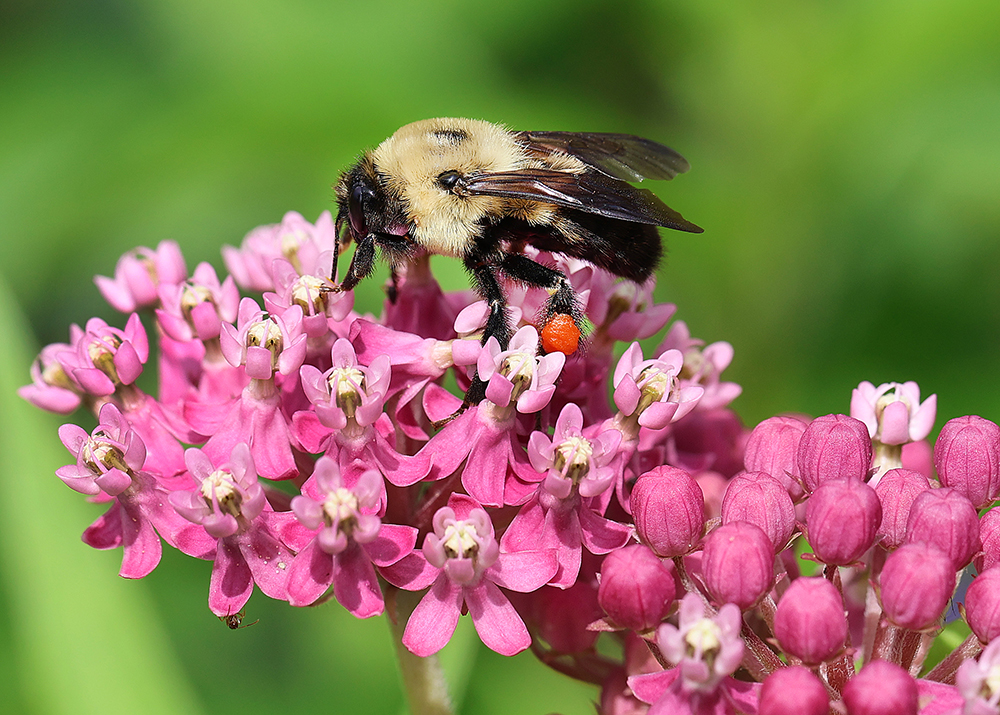
Bumble bee on swamp milkweed (Asclepias incarnata). Photo by Debbie Roos.
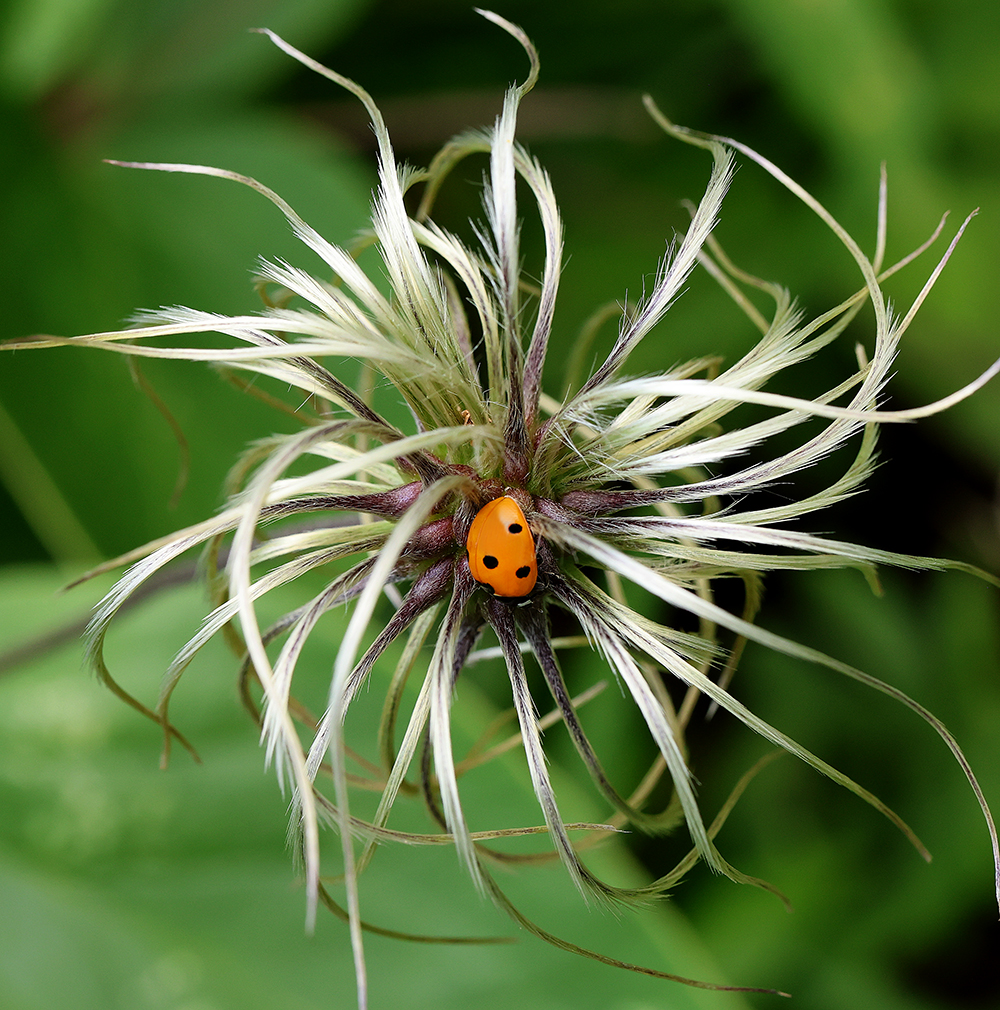
Lady beetle sheltering in curlyheads (Clematis ochroleuca) seedhead. Photo by Debbie Roos.
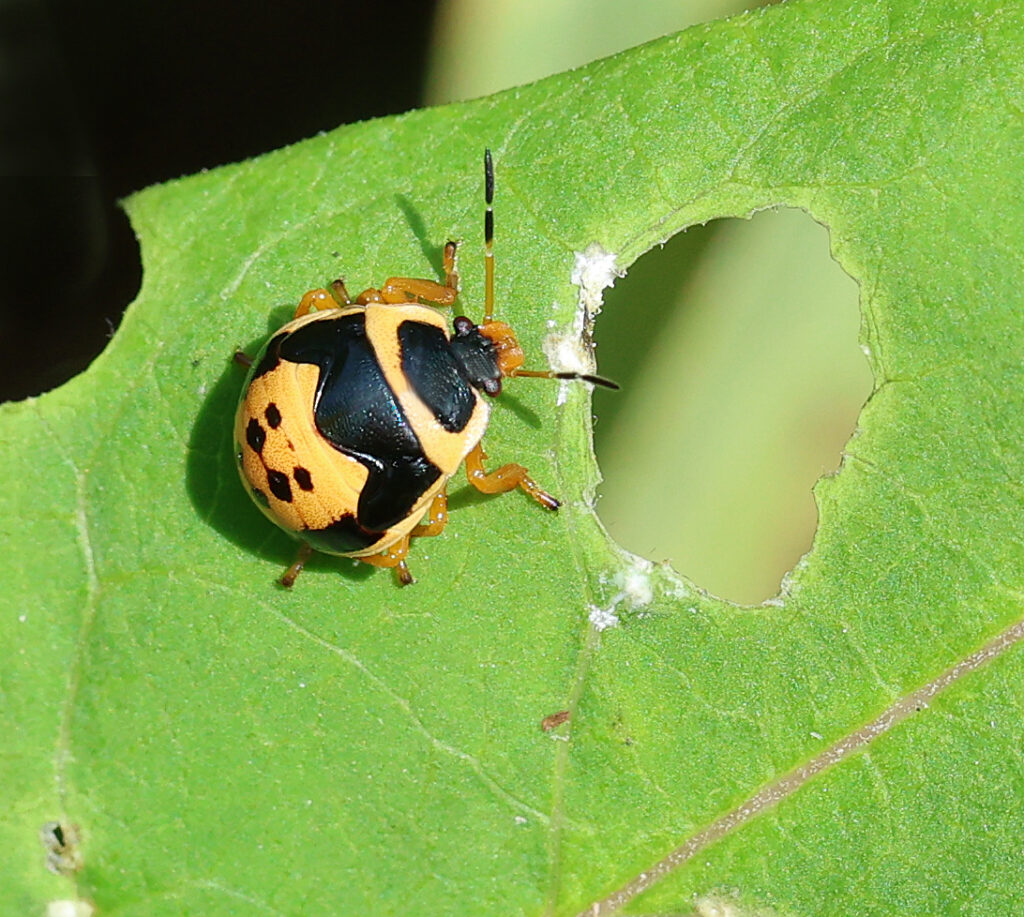
Predatory anchor bug nymph on common milkweed (Asclepias syriaca). Photo by Debbie Roos.
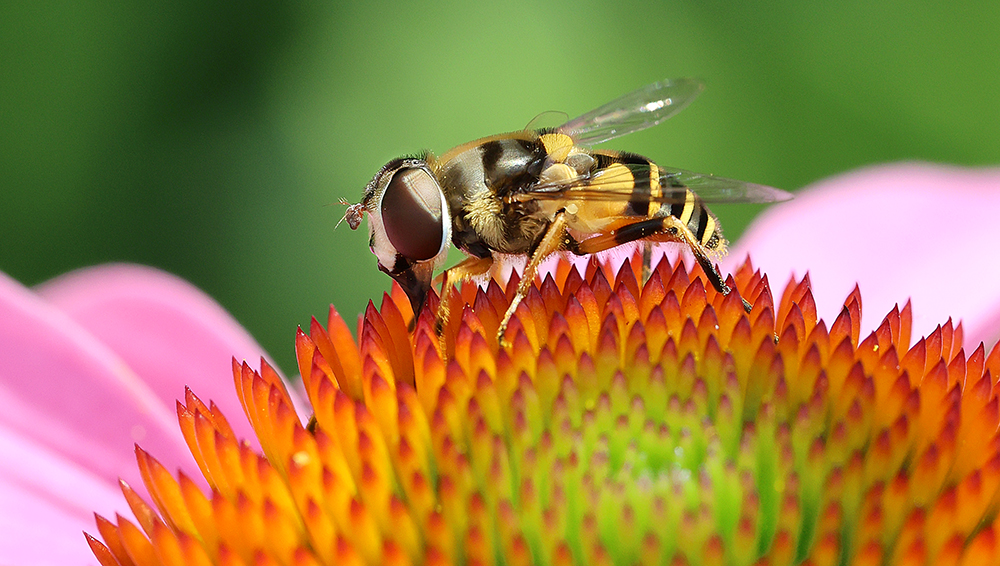
Syrphid fly on purple coneflower (Echinacea purpurea). Photo by Debbie Roos.
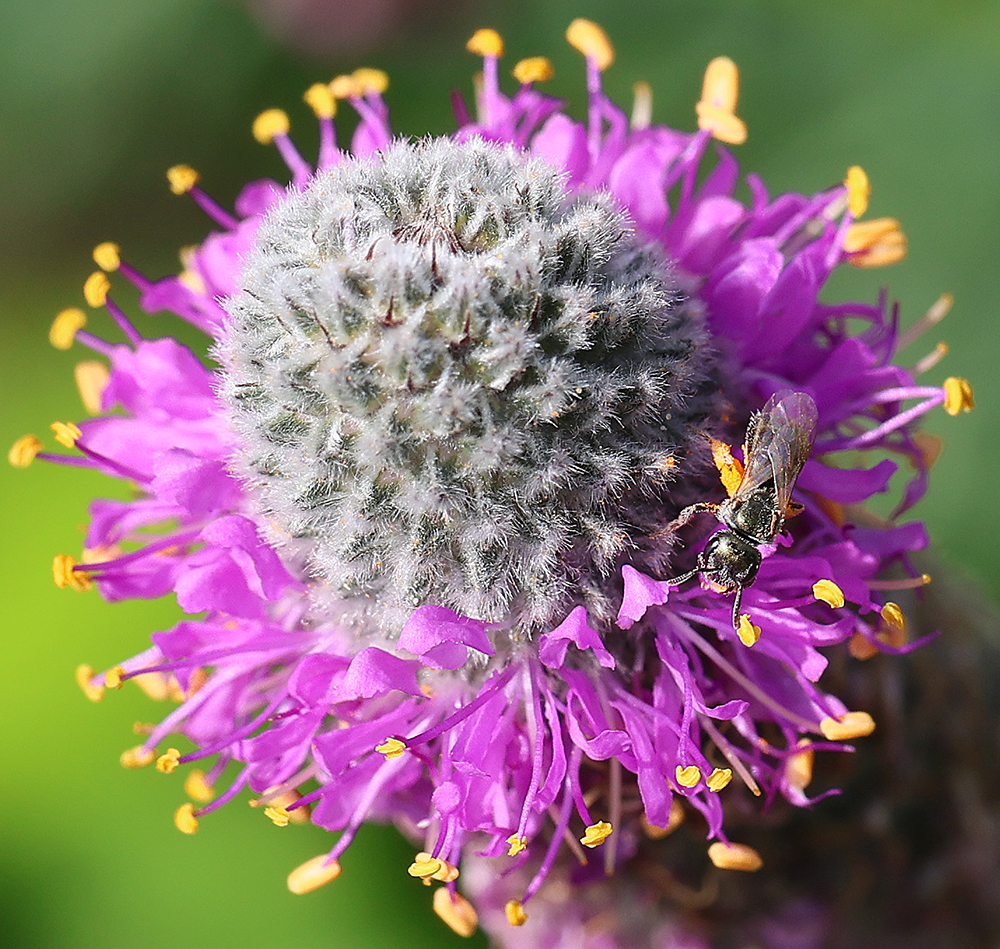
Small carpenter bee on purple prairie clover (Dalea purpurea). Photo by Debbie Roos.
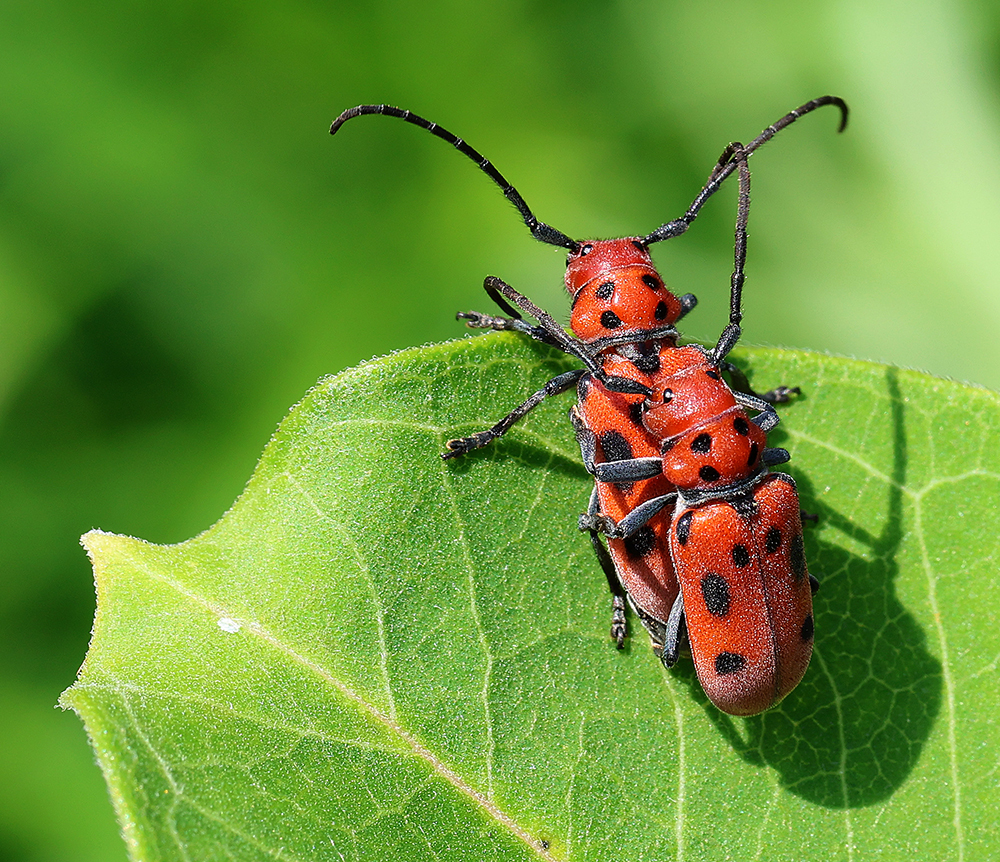
Red milkweed beetles on common milkweed (Asclepias syriaca). Photo by Debbie Roos.
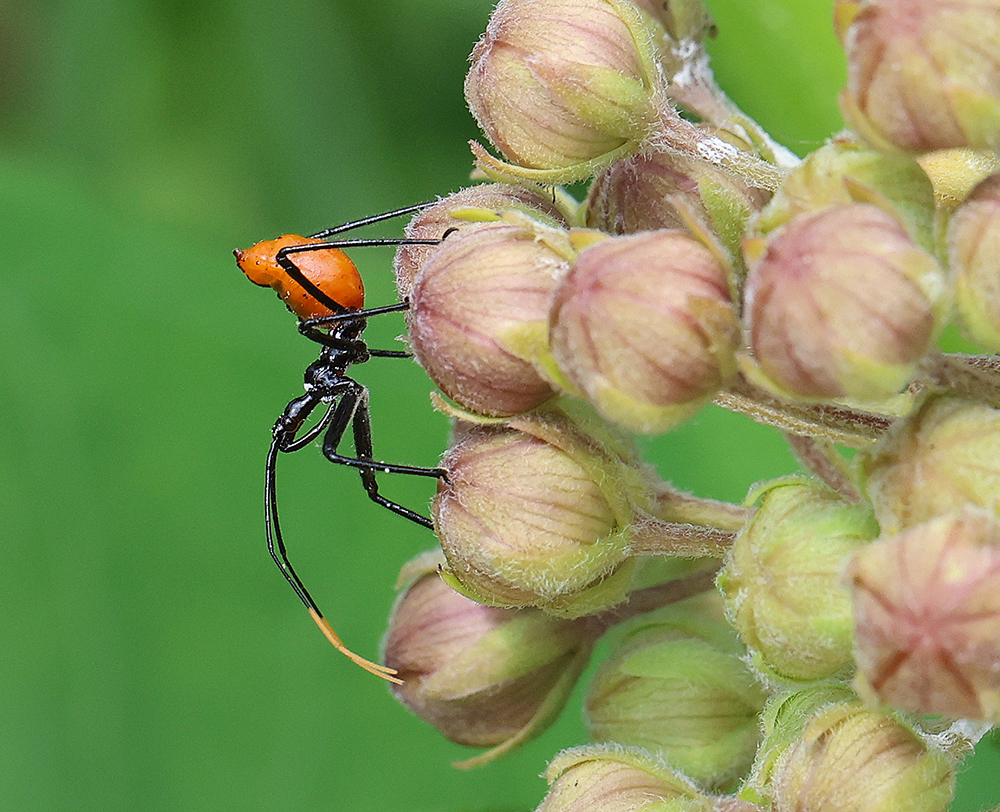
Predatory wheel bug nymph, our largest species of assassin bug, on common milkweed (Asclepias syriaca). Photo by Debbie Roos.
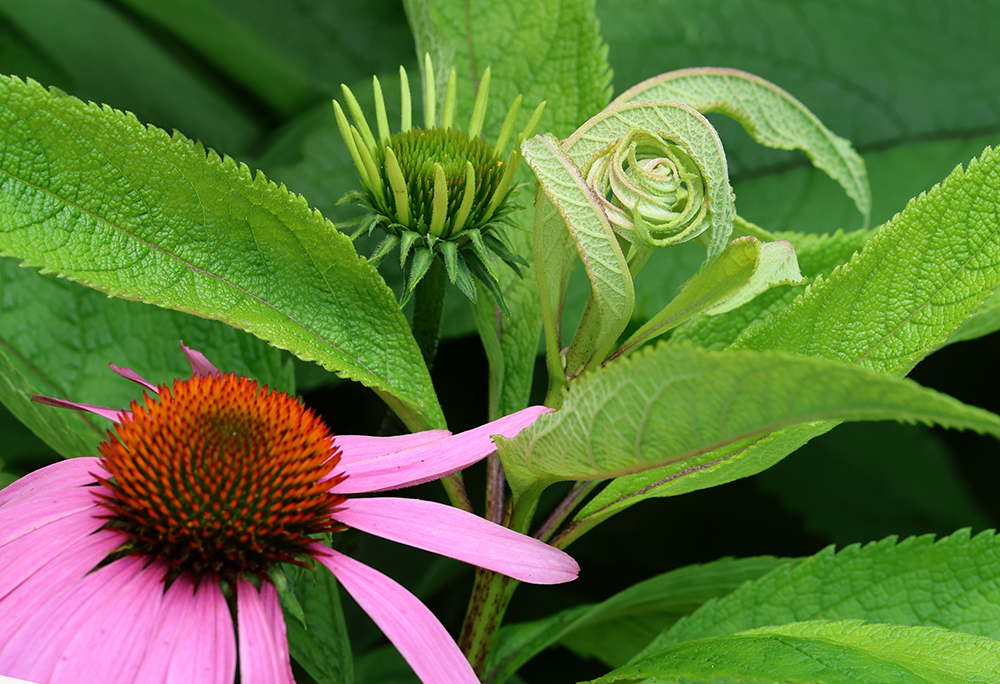
Coneflowers and joe-pye weed (Eutrochium dubium). Photo by Debbie Roos.
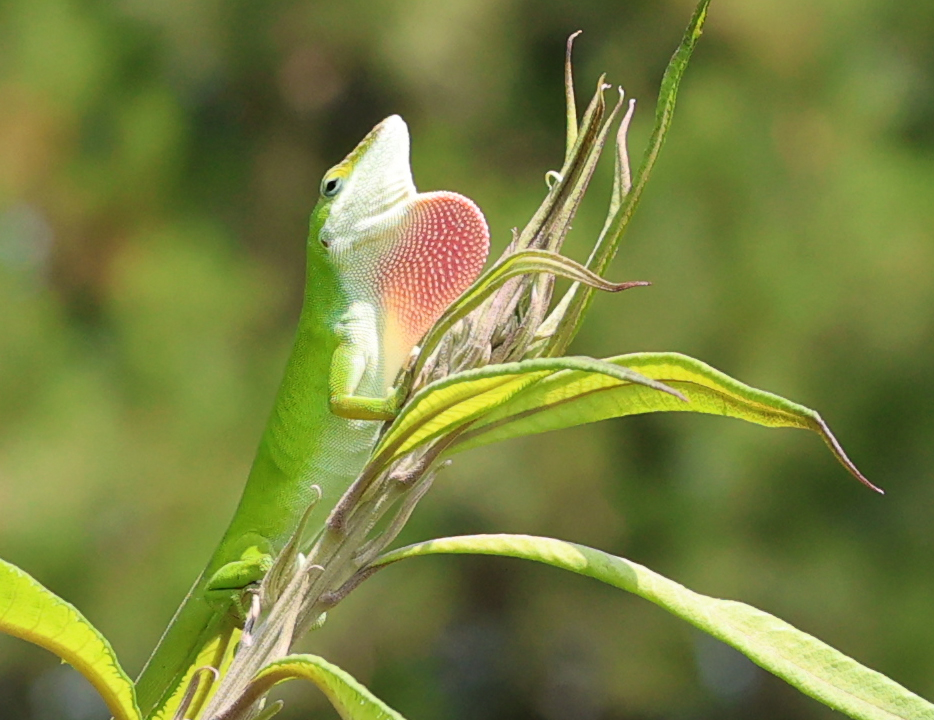
Male Carolina anole displaying his dewlap on ironweed (Vernonia boracensis). Photo by Debbie Roos.

Tall anemone (Anemone virginiana). Photo by Debbie Roos.
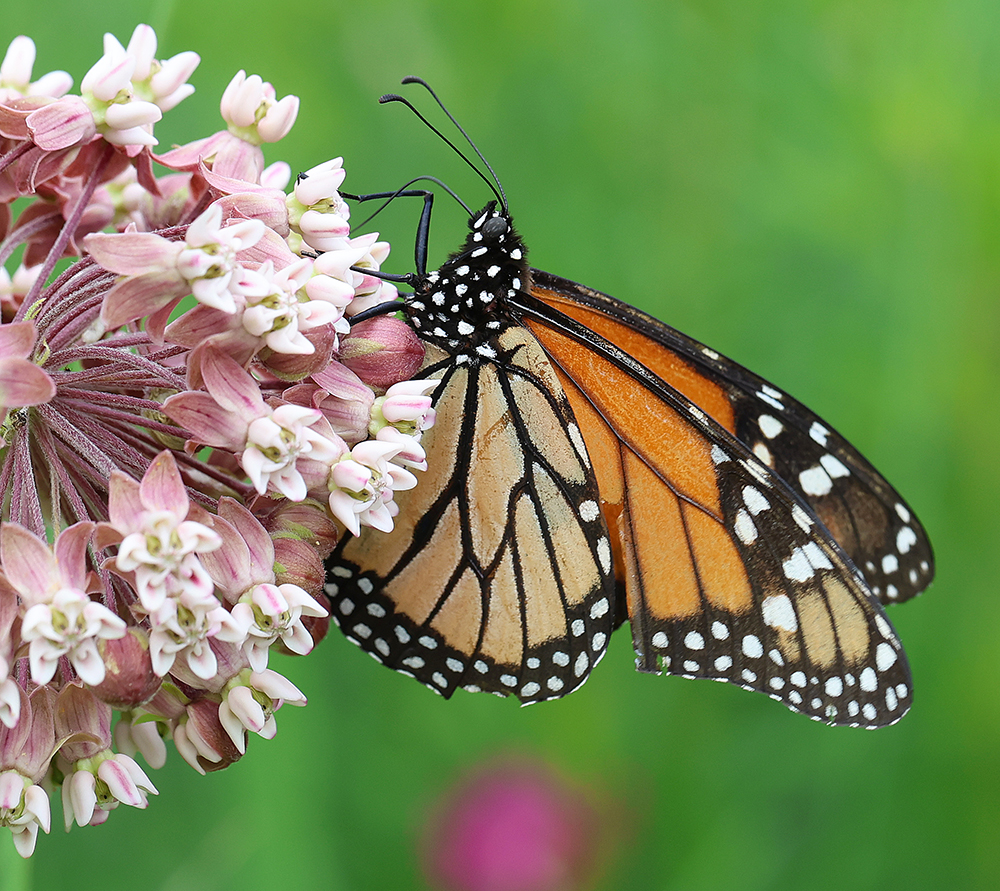
Monarch nectaring on common milkweed (Asclepias syriaca). Photo by Debbie Roos.
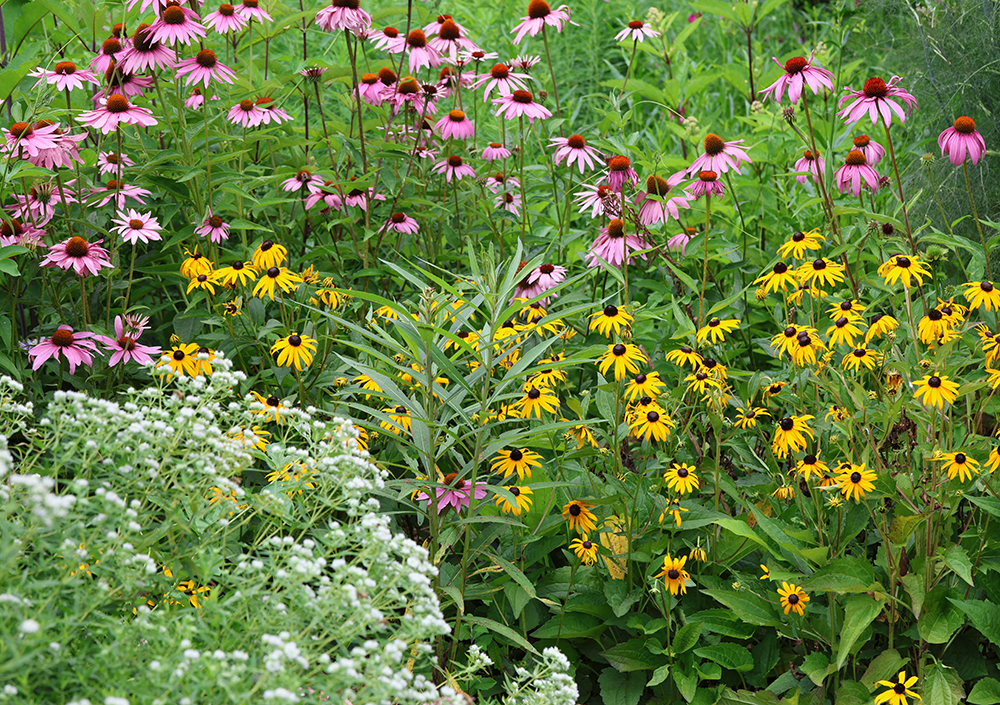
Purple coneflower, orange coneflower, and mountain mint. Photo by Debbie Roos.

Newly emerged stink bug hatchlings with egg cases on aster leaf. I’m not able to ID at this stage – could be predators or pests. Photo by Debbie Roos.
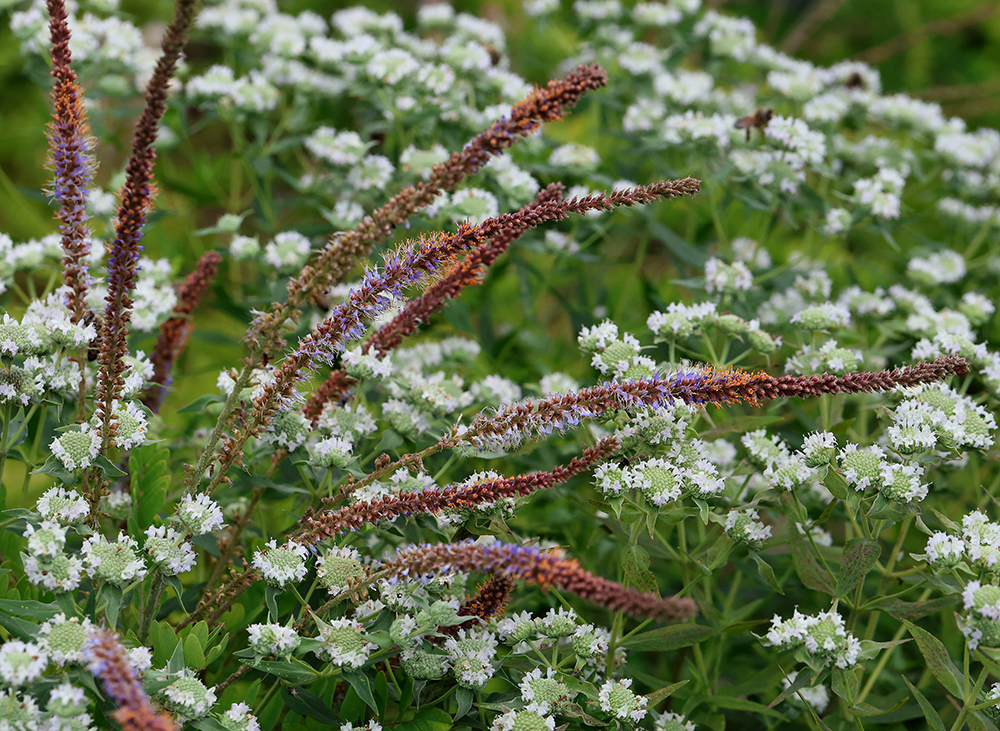
Flower spikes of dwarf indigo bush (Amorpha herbacea) emerging through Virginia mountain mint (Pycnanthemum virginianum). Photo by Debbie Roos.
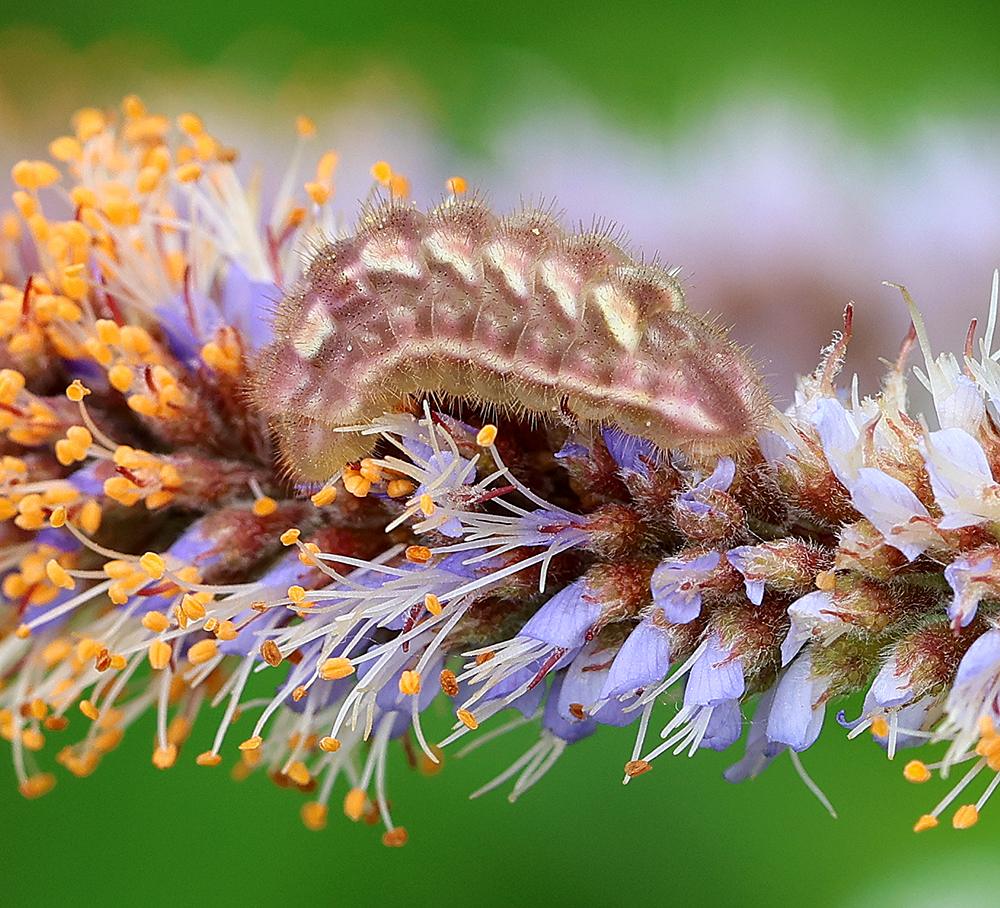
Gray hairstreak caterpillar on dwarf indigo bush (Amorpha herbacea). Photo by Debbie Roos.
For more information:
Pollinator Paradise Garden website
What’s in Bloom in the Pollinator Garden – updated bi-weekly!


